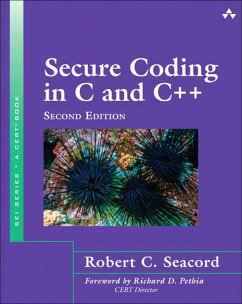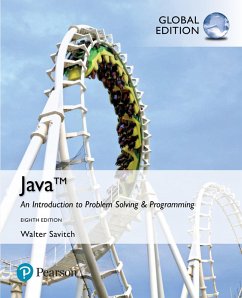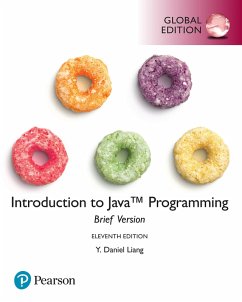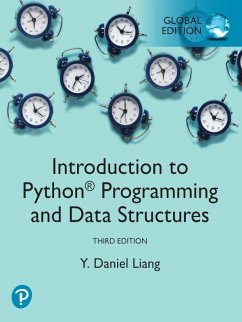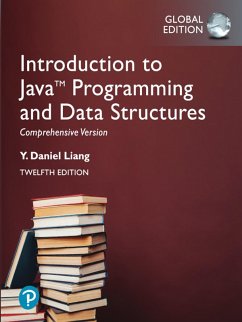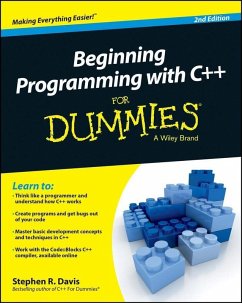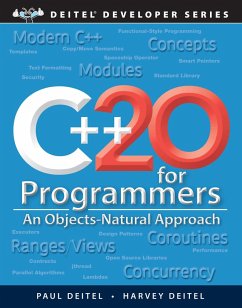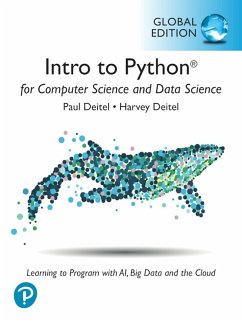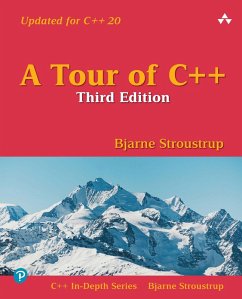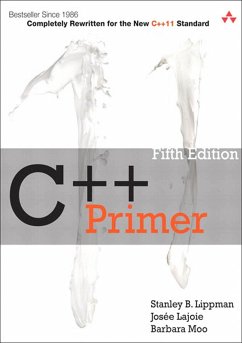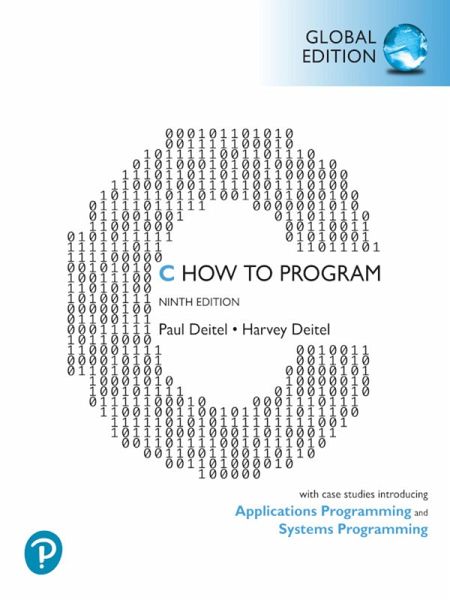
C How to Program: With Case Studies in Applications and Systems Programming, Global Edition (eBook, PDF)
Versandkostenfrei!
Sofort per Download lieferbar
35,95 €
inkl. MwSt.
Weitere Ausgaben:

PAYBACK Punkte
18 °P sammeln!
This print textbook is available for you to rent for your classes. The Pearson print rental program provides you with affordable access to learning materials, so you go to class ready to succeed.C How to Program is a user-friendly, code-intensive introduction to C programming with case studies introducing applications and system programming. Like other texts of the Deitels' How to Program series, the book's modular presentation serves as a detailed beginner source of information for college students looking to embark on a career in coding, or instructors and software-development professionals ...
This print textbook is available for you to rent for your classes. The Pearson print rental program provides you with affordable access to learning materials, so you go to class ready to succeed.
C How to Program is a user-friendly, code-intensive introduction to C programming with case studies introducing applications and system programming. Like other texts of the Deitels' How to Program series, the book's modular presentation serves as a detailed beginner source of information for college students looking to embark on a career in coding, or instructors and software-development professionals seeking to learn how to program with C. The signature Deitel live-code approach presents concepts in the context of 142 full-working programs rather than incomplete snips of code. This gives you a chance to run each program as you study it and see how your learning applies to real-world programming scenarios.
Current standards, contemporary practice, and hands-on learning opportunities are integrated throughout the 9th Edition. Over 340 new integrated Self-Check exercises with answers allow you to test your understanding of important concepts - and check your code - as you read. New and enhanced case studies and exercises use real-world data and focus on the latest ACM/IEEE computing curricula recommendations, highlighting security, data science, ethics, privacy, and performance concepts.
C How to Program is a user-friendly, code-intensive introduction to C programming with case studies introducing applications and system programming. Like other texts of the Deitels' How to Program series, the book's modular presentation serves as a detailed beginner source of information for college students looking to embark on a career in coding, or instructors and software-development professionals seeking to learn how to program with C. The signature Deitel live-code approach presents concepts in the context of 142 full-working programs rather than incomplete snips of code. This gives you a chance to run each program as you study it and see how your learning applies to real-world programming scenarios.
Current standards, contemporary practice, and hands-on learning opportunities are integrated throughout the 9th Edition. Over 340 new integrated Self-Check exercises with answers allow you to test your understanding of important concepts - and check your code - as you read. New and enhanced case studies and exercises use real-world data and focus on the latest ACM/IEEE computing curricula recommendations, highlighting security, data science, ethics, privacy, and performance concepts.
Dieser Download kann aus rechtlichen Gründen nur mit Rechnungsadresse in A, B, BG, CY, CZ, D, DK, EW, E, FIN, F, GR, HR, H, IRL, I, LT, L, LR, M, NL, PL, P, R, S, SLO, SK ausgeliefert werden.




